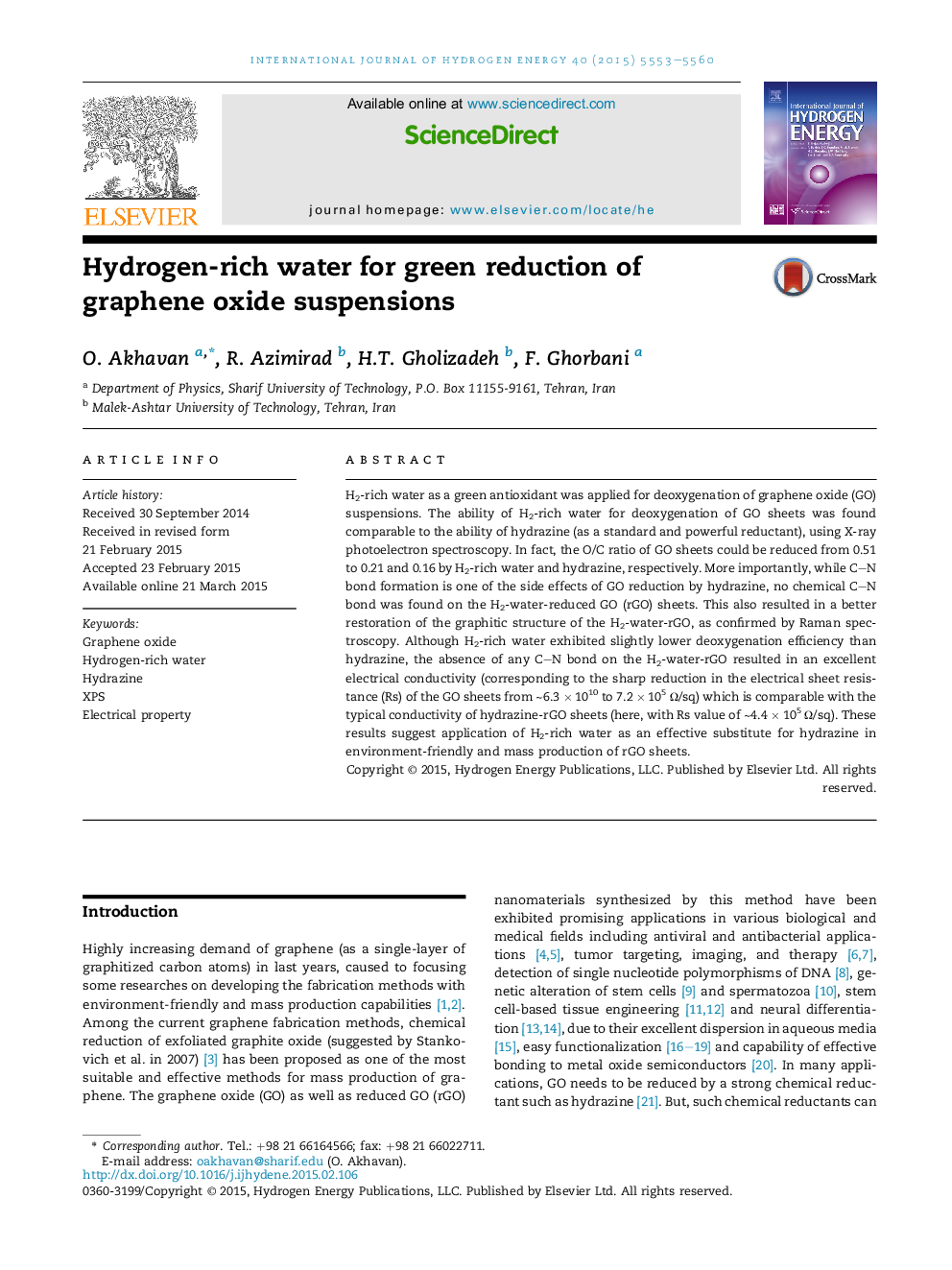| کد مقاله | کد نشریه | سال انتشار | مقاله انگلیسی | نسخه تمام متن |
|---|---|---|---|---|
| 1275609 | 1497457 | 2015 | 8 صفحه PDF | دانلود رایگان |
• Deoxygenation of the graphene oxide by Hydrogen-rich water.
• Comparable physical properties for H2-rich water rGO, as compared to the properties of GO reduced by hydrazine.
• The H2-rich water rGO showed no defects relating C–N bonds formed in hydrazine-rGO.
H2-rich water as a green antioxidant was applied for deoxygenation of graphene oxide (GO) suspensions. The ability of H2-rich water for deoxygenation of GO sheets was found comparable to the ability of hydrazine (as a standard and powerful reductant), using X-ray photoelectron spectroscopy. In fact, the O/C ratio of GO sheets could be reduced from 0.51 to 0.21 and 0.16 by H2-rich water and hydrazine, respectively. More importantly, while C–N bond formation is one of the side effects of GO reduction by hydrazine, no chemical C–N bond was found on the H2-water-reduced GO (rGO) sheets. This also resulted in a better restoration of the graphitic structure of the H2-water-rGO, as confirmed by Raman spectroscopy. Although H2-rich water exhibited slightly lower deoxygenation efficiency than hydrazine, the absence of any C–N bond on the H2-water-rGO resulted in an excellent electrical conductivity (corresponding to the sharp reduction in the electrical sheet resistance (Rs) of the GO sheets from ∼6.3 × 1010 to 7.2 × 105 Ω/sq) which is comparable with the typical conductivity of hydrazine-rGO sheets (here, with Rs value of ∼4.4 × 105 Ω/sq). These results suggest application of H2-rich water as an effective substitute for hydrazine in environment-friendly and mass production of rGO sheets.
Journal: International Journal of Hydrogen Energy - Volume 40, Issue 16, 4 May 2015, Pages 5553–5560
